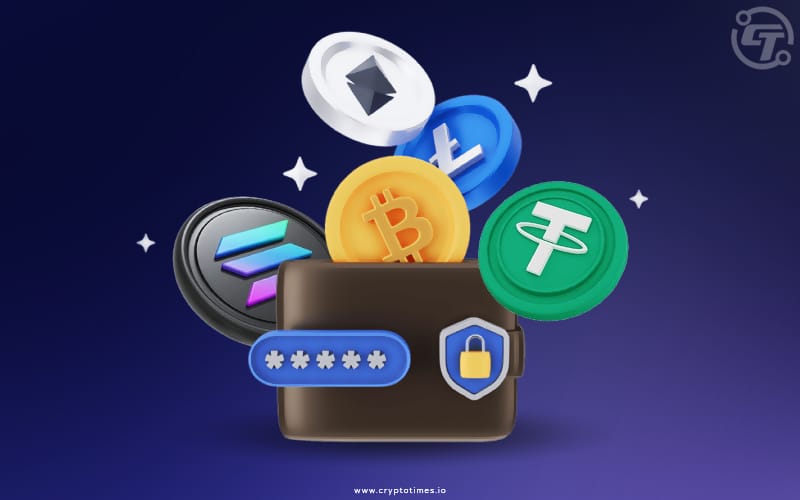Starting the journey of choosing the right cryptocurrency wallet for privacy is not just about choosing a tool; it’s about securing your digital autonomy. With a wide variety of options at your fingertips, it is essential to understand the landscape of available crypto wallets.
Each type of crypto wallet comes with its unique set of features, security measures, and privacy protocols. Therefore, it becomes important not only to recognize the nuances that distinguish one from the other, but also to appreciate it. This exploration is not just technical; it is a personal alignment with your privacy values and the level of security you seek.
In this article, we will delve into how to choose the best crypto wallets for your crypto funds. Imagine us unpacking a map and laying out the terrain of cryptocurrency wallets with its valleys of features and peaks of security protocols.
We will navigate this landscape together and highlight the directions that will lead you to a decision that matches your individual needs and privacy expectations. It’s about making an informed choice, one that feels as right in the gut as it makes sense on paper. Let’s begin this journey, equipped with knowledge and ready to make choices that empower our digital freedom.
Types of Cryptocurrency Wallets
Before choosing crypto wallet, it is essential to understand its types. Here are five main types of crypto wallets available in the market.
Hot wallets: These wallets are online and connected to the internet, making transactions easy and fast. However, being online means they are more susceptible to hacking. Cold wallets: Cold wallets are offline and not connected to the internet, which provides better security. They come in the form of hardware wallets or paper wallets and are ideal for securely storing large amounts of cryptocurrency. Software wallets: Installed on your computer or mobile device, software wallets can be hot or cold depending on whether they are connected to the Internet or not. They offer a balance between convenience and security. Hardware wallets: A form of cold storage, hardware wallets are physical devices that store your private keys offline. They are considered to be one of the most secure types of wallets available. Paper wallets: The most basic form of cold storage, paper wallets are simply a physical printout of your public and private keys. Although it is safe from digital threats, it can get damaged or lost.
Key features for privacy
While choosing the crypto wallet, you should consider these features in your list.
Anonymous Transactions: Look for wallets that offer the ability to send and receive cryptocurrency anonymously. Some wallets use advanced techniques to hide the transaction trace. Control over private keys: Make sure the wallet gives you full control over your private keys. Wallets that store keys online or those controlled by third parties may be more vulnerable to breaches. Two-Factor Authentication (2FA): A wallet with 2FA requires a second form of authentication before allowing access or transactions, adding an extra layer of security. -Signature support: Multi-signature wallets require more than one key to authorize a transaction, providing an additional layer of security and reducing the risk of unauthorized access.
As you explore options, you may want to consider Web 3.0 and cryptocurrency tools like Hero. Services like Hero can provide robust options for securely managing your digital assets. They may be able to offer integrated solutions that match the privacy and security needs of modern cryptocurrency users. When choosing a wallet, think about how it integrates with broader cryptocurrency management tools and platforms.
1. Evaluating a wallet’s reputation
Before you go on a wallet, research its reputation. Find reviews from current users and analyze any reports of security breaches or privacy issues. A wallet’s track record can give you a good indication of its reliability and the level of security it can offer.
2. User experience
Don’t overlook the importance of a user-friendly interface. A wallet that is difficult to navigate can lead to errors that can compromise your security. You want a balance between robust security features and a user interface that doesn’t require advanced technical skills to operate.
3. Backup and recovery options
In the event of device failure or loss, it is essential to have a backup and recovery process. Without it, you can permanently lose access to your cryptocurrency. Check if the wallet offers simple and secure ways to recover your data.
Tips to Secure Your Cryptocurrency Wallet
Here are some tips to help you secure your cryptocurrency wallet:
Use a strong and unique password: Avoid using weak passwords or reusing passwords across different accounts. Instead, use a strong and unique password for your cryptocurrency wallet. Enable two-factor authentication: Two-factor authentication adds an extra layer of security to your wallet. It requires you to provide a second form of authentication, such as a code sent to your phone, before allowing access to your wallet. Keep your private keys offline: If you use a hardware wallet, make sure you keep your private keys offline and in a safe place. Do not share your private keys with anyone. Keep your software up to date: Make sure to keep your wallet software up to date to avoid any security vulnerabilities.
Also Read: How Safe Is A Crypto Wallet For Your Digital Currencies?
Risks Related to Cryptocurrency Wallets
Hacking: Cryptocurrency wallets connected to the internet are vulnerable to hacking. Make sure you use a secure and reliable wallet to minimize the risk of hacking. Loss of private keys: If you lose your private keys, you can lose access to your cryptocurrency forever. Make sure you keep your private keys in a safe place and have a backup plan in case you lose them. Scams: There are many cryptocurrency scams out there. Be sure to do your research and only use reputable wallets and exchanges. Volatility: Cryptocurrencies are known for their volatility, which means their value can change quickly. Be sure to keep this in mind when deciding how much to invest in cryptocurrencies.
Closure
Choosing the right cryptocurrency wallet for privacy comes down to understanding the types of wallets available, identifying key features that support privacy and security, and doing your homework on each wallet’s reputation and ease of use.
Don’t forget to consider how your chosen wallet works with larger tools and platforms designed for cryptocurrency and Web 3.0. Making an informed decision will help ensure that your digital assets are as secure and private as you need them to be.
Disclaimer for Uncirculars, with a Touch of Personality:
While we love diving into the exciting world of crypto here at Uncirculars, remember that this post, and all our content, is purely for your information and exploration. Think of it as your crypto compass, pointing you in the right direction to do your own research and make informed decisions.
No legal, tax, investment, or financial advice should be inferred from these pixels. We’re not fortune tellers or stockbrokers, just passionate crypto enthusiasts sharing our knowledge.
And just like that rollercoaster ride in your favorite DeFi protocol, past performance isn’t a guarantee of future thrills. The value of crypto assets can be as unpredictable as a moon landing, so buckle up and do your due diligence before taking the plunge.
Ultimately, any crypto adventure you embark on is yours alone. We’re just happy to be your crypto companion, cheering you on from the sidelines (and maybe sharing some snacks along the way). So research, explore, and remember, with a little knowledge and a lot of curiosity, you can navigate the crypto cosmos like a pro!
UnCirculars – Cutting through the noise, delivering unbiased crypto news















